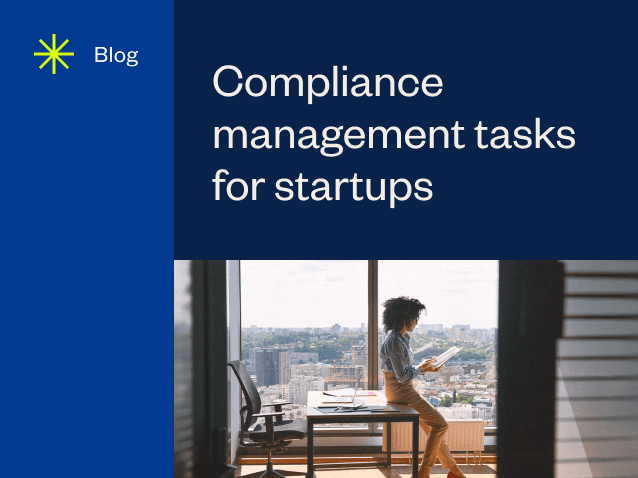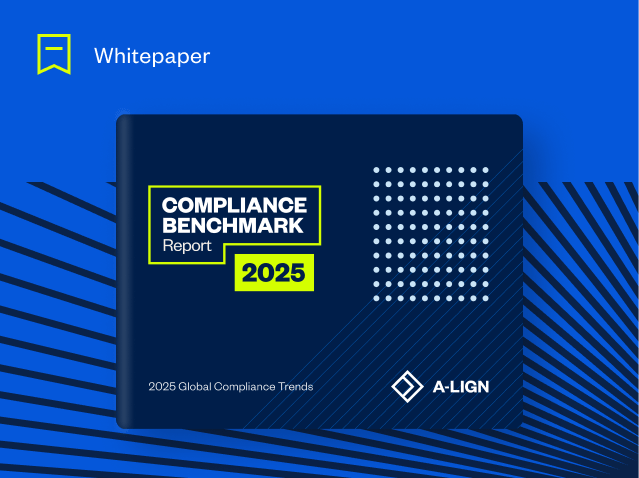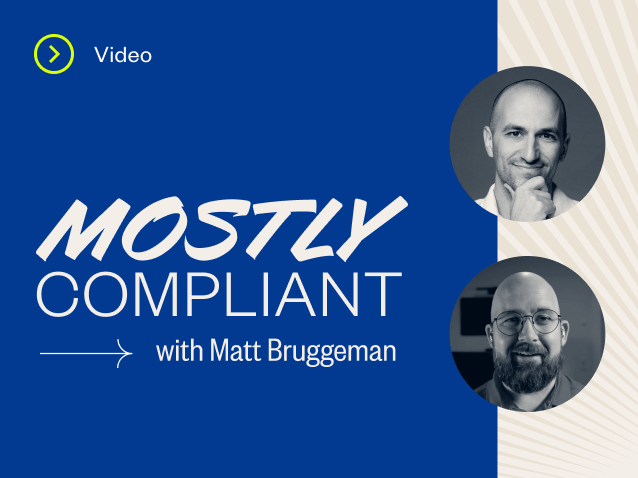4 Important Compliance Management Tasks for Startups

The ongoing increase in cyberattacks has emphasized the importance of cybersecurity and compliance management, especially for startups still gaining market share. As startups work to win new customers, they may have to overcome a prospect’s fears that as an organization so new, they may not have strict security protocols in place to keep their information and data secure.
Compliance certifications and reports help startups earn customer trust so that customers feel more secure working with small businesses. Bonus- Third-party attestation to the security of your systems makes your startup look much more mature to investors, which means more opportunities for money in your pocket!
However, compliance authorization and attestation programs can seem overwhelming because of all the pieces organizations need to consider — especially the strain it can place on startups with already-limited resources.
Compliance for startups doesn’t have to mean spending all of your time and money on compliance initiatives immediately. Take a layered approach to compliance, treating the process like a marathon instead of a sprint, to ensure your organization does not act outside of its means. Here are four important compliance management tasks to complete in order to begin your cybersecurity journey on the best foot:
- Determine your risk areas.
- Invest in technology, including internal education and security tools.
- Establish and test an incident response and business continuity plan.
- Select an auditing firm.
1. Determine Your Risk Areas
All startups must first take inventory of what they are trying to protect to understand where to focus their compliance and cybersecurity efforts. To determine a company’s most valuable assets, startups should ask themselves:
- What are the risks across my infrastructure?
- What’s the likelihood of the risk occurring?
- What are the implications of that risk?
- What’s the cost of NOT doing something to address the risk?
Once these risks are assessed, it’s important to communicate the findings to the entire company. Making sure everyone is on the same page ensures resources are responsibility divided amongst priorities.
After determining their risk areas, startups can begin pursuing compliance for various standards. Many startups choose to become SOC 2 compliant first, as its strict protocols provide reassurance to potential customers. But there are also other relevant compliance standards for specific individual industries, such as HIPAA for healthcare startups or PCI DSS for startups processing financial/credit card data.
2. Invest in Technology, Including Internal Education and Security Tools
Organizations are only as secure as their weakest link, which usually tends to be their people. Educating and training employees should be considered just as important as implementing technical controls to protect information. Internal team members must understand how they can help avoid — or at least reduce — the risk of a cyberattack.
For startups to establish a secure environment at the most basic level, they should:
- Ensure each department follows existing policies and is properly using the most updated version of relevant security controls.
- Ensure all employees are using a VPN if they are not working from a secure office location.
- Provide security awareness training for employees to ensure they are knowledgeable about current threats and best practices to prevent an event from occurring.
- Establish a process of multi-factor authentication for all log-ins.
3. Establish and Test an Incident Response and Business Continuity Plan
There is no way to completely eliminate the possibility of a cyberattack. This is why it’s so essential for startups to have an incident response plan in place well ahead of time.
When creating an incident response or a business continuity plan, startups should consider including each of the following steps to maximize the plan’s efficiency:
- How to assess the technical impact of a breach or incident
- How to identify compromised data
- How to determine the organizational impact of a cyberattack
- Best practices for notifying relevant parties
- Plans to execute a PR strategy after an incident has occurred
- Plans to implement third-party monitoring
There are third-party organizations that can audit your startup’s response plan. Some organizations, like A-LIGN, even offer assessments to see how your response plan would withstand a ransomware attack or major cybersecurity event. These assessments can help you find holes in your frameworks in a non-emergency situation, allowing you time to make revisions.
4. Select an Auditing Firm
Once your startup reaches a certain level of compliance and cybersecurity maturity, it’s time to bring in an auditing firm to help you continue on your journey. A firm should be able to act as a trusted partner who can help you navigate the intricacies of the compliance management and security landscape. They can also guide you on which compliance tasks/frameworks make the most sense for your industry.
Certain federal agencies require the organizations they do business with to obtain specific authorizations, like FedRAMP or StateRAMP. These two authorizations have lengthy auditing processes that can be time consuming for well-established organizations to manage on their own. Startups may have even fewer internal resources.
A-LIGN will work with you to acquire the proper certifications as needed and will partner with you to ensure your organization continues to properly mitigate risk as it grows.
Prioritize Compliance Today
When it comes to compliance management for startups, your organization can start taking a proactive approach to security today — even if you only have limited financial resources.
A-LIGN is well-versed in meeting the requirements of a broad range of compliance standards and security frameworks including SOC 2, PCI DSS, ISO 27001, GDPR, FISMA, FedRAMP, and NIST-based frameworks. Our advisors and auditors can help guide your startup on its compliance journey and partner with your team to help you meet all compliance needs.
With the right partner in place, you can start scaling your business. Begin your compliance journey with A-LIGN today.





